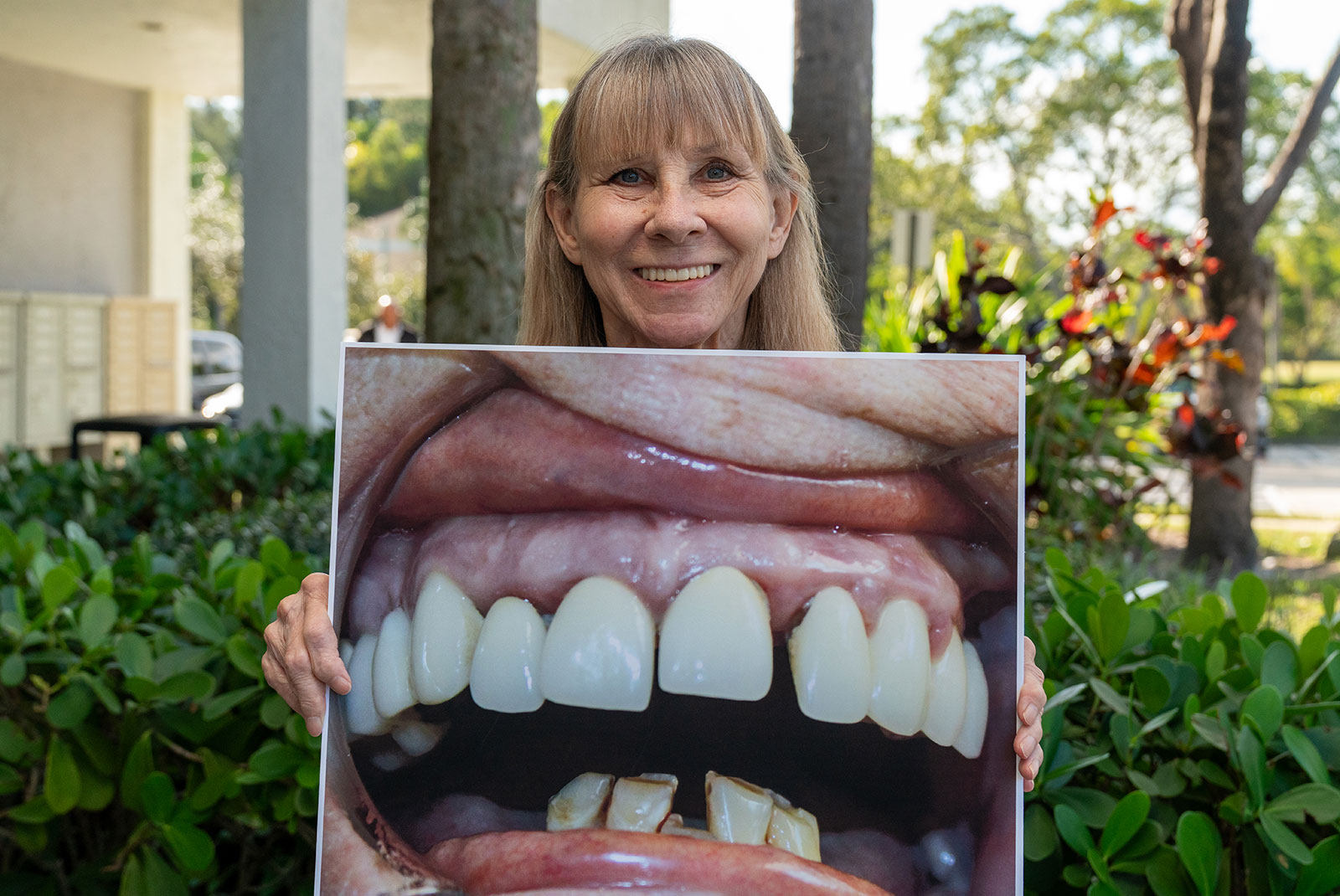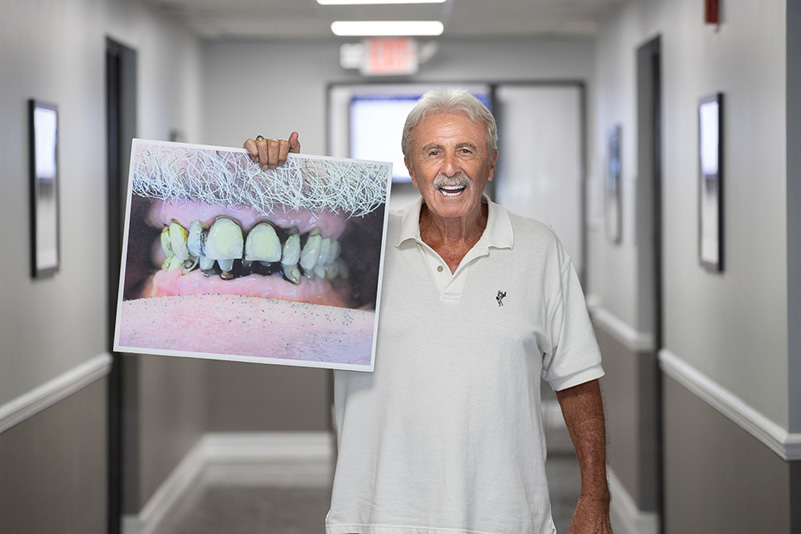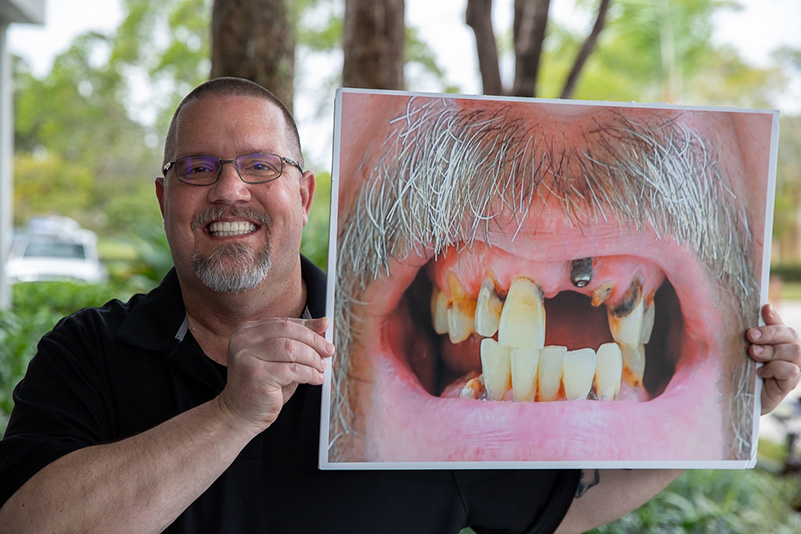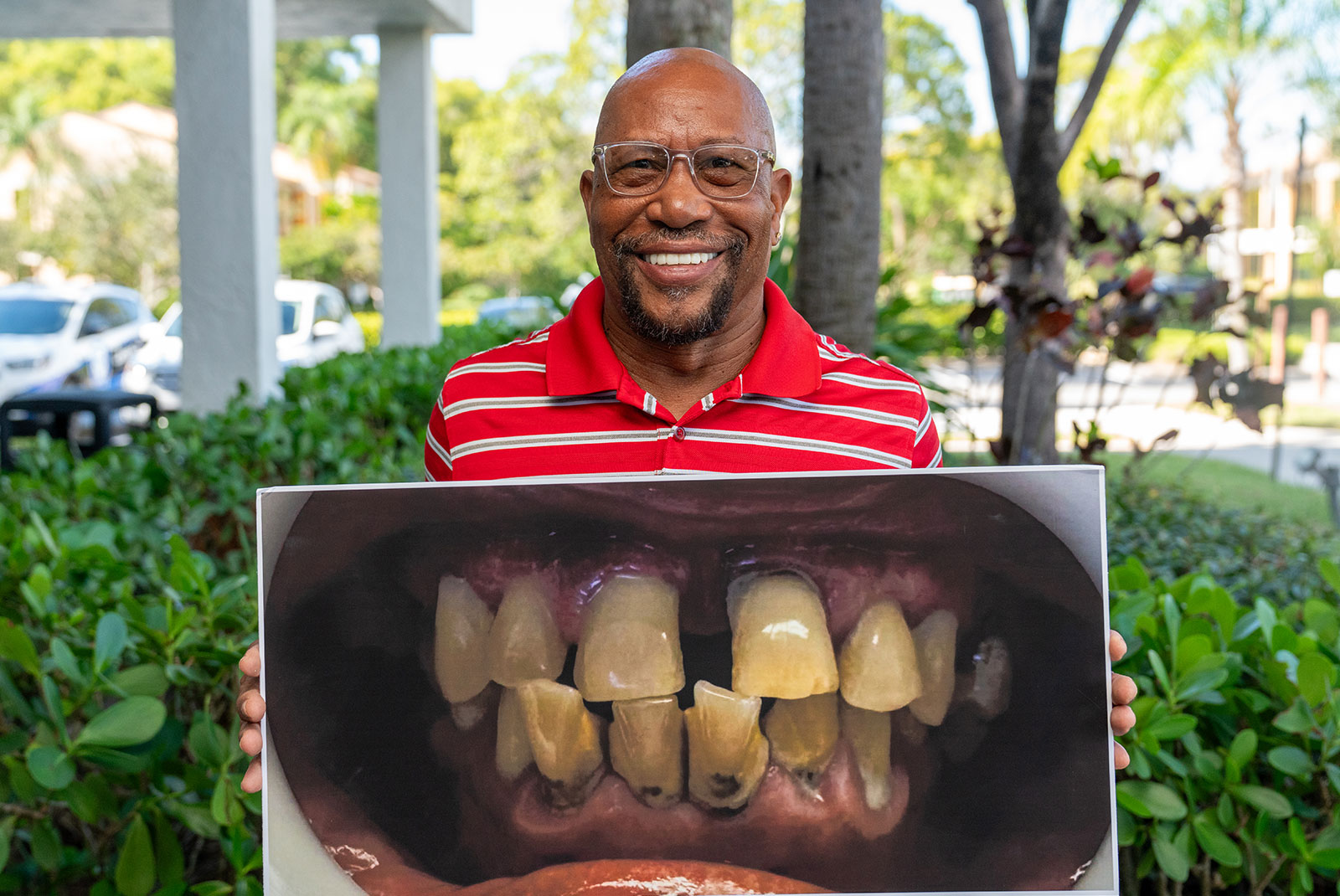Dental Implant Surgery - Greenacres, FL
A Brand-New, Healthy Smile
Reimagined

Eat, Smile, Repeat
Are you missing one or more teeth? If so, you know how awkward (and even painful) eating your favorite foods can be. You may struggle to laugh and socialize with your friends. And if you’re missing most or all your teeth, this can lead to loss of bone volume in your jaw, changing the shape of your face.
Dental implants are the “gold standard” solution regardless of how many teeth you’re missing. These permanent tooth replacements are the premium solution for any number of missing teeth, lasting for decades or a lifetime. Our team at Ferber Dental Group is experienced in single and full mouth dental implants in Greenacres, FL, and across Palm Beach County, and we’d love to help you improve your health and the quality of your life with these restorations.

What Are Dental Implants?
Unlike other tooth replacements, dental implants have three components – a post, an abutment, and a restoration. The posts are surgically implanted in your jaw, ensuring the most stable, long-lasting restoration. We mill the restoration for you in our laboratory. And the abutment joins these together. This permanent solution, especially for full mouth dental implants, requires a skilled implant dentist and advanced technology, so we use robotically-guided techniques for all our implant procedures.

How Do We Ensure Longevity for Your Dental Implants?
Multiple Options for One Brilliant Smile
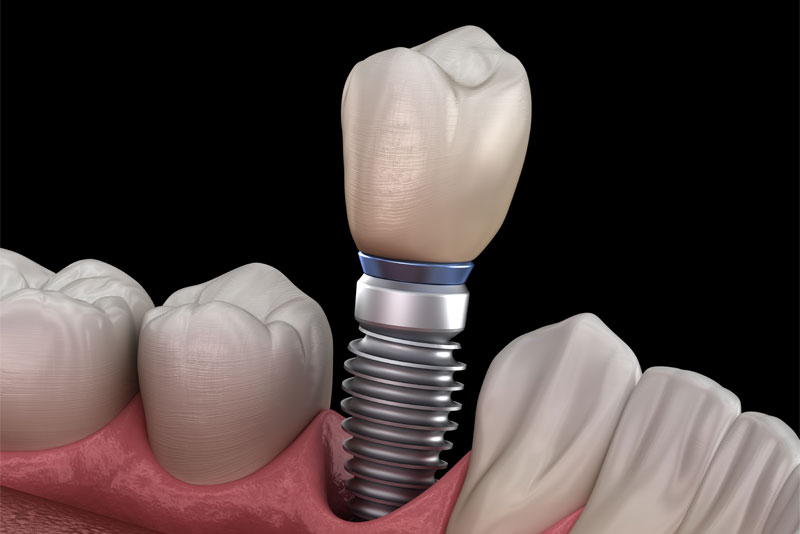
Single Dental Implants
Single dental implants offer a precise and effective solution for replacing a missing tooth. Through a process that involves placing a titanium post into the jawbone, a natural-looking prosthetic tooth is attached, seamlessly blending with your existing teeth. This approach restores your smile’s integrity, function, and aesthetics while preventing potential issues arising from gaps in your dental structure.
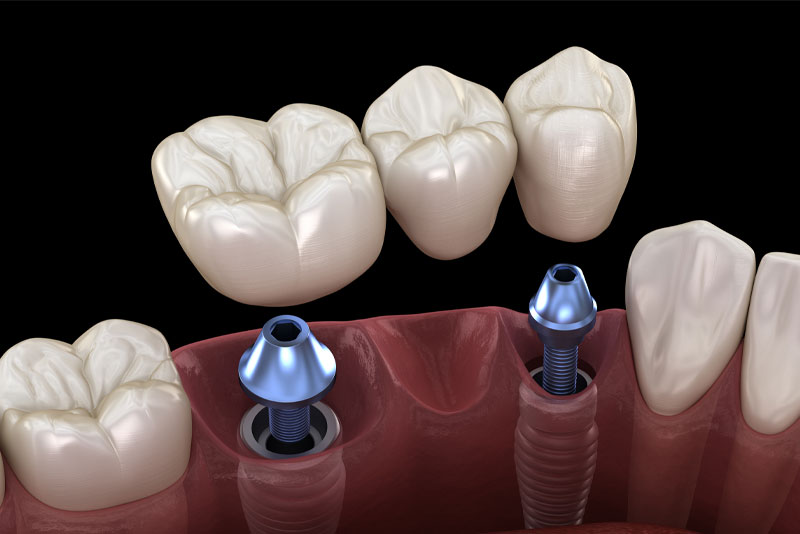
Multiple Dental Implants
Multiple dental implants provide a comprehensive solution for replacing several missing teeth in a targeted area. Prosthetic teeth are secured by strategically placing titanium posts into the jawbone, ensuring stability and harmonious integration with your smile. This approach enhances your appearance and restores proper chewing function, preventing potential shifts in surrounding teeth and promoting long-term oral health.
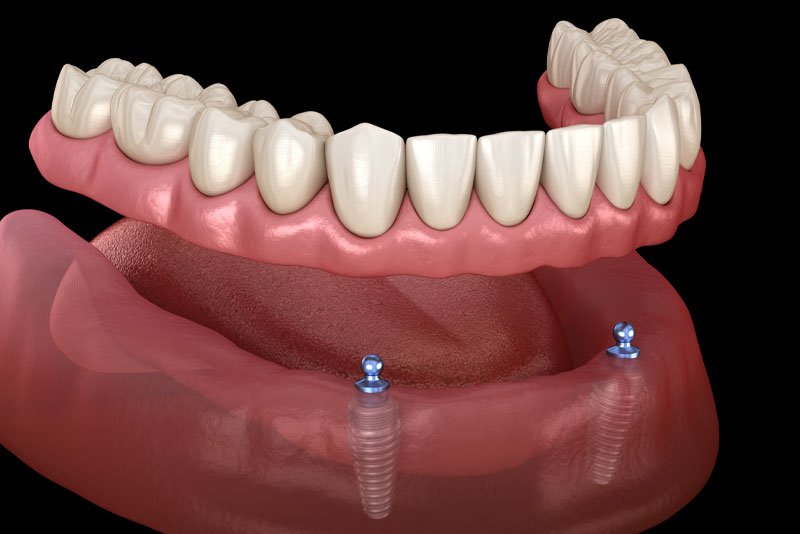
Implant-Supported Dentures
Implant-supported dentures offer a secure and comfortable alternative for individuals with multiple missing teeth. By anchoring the dentures to dental implants strategically placed in the jawbone, they eliminate concerns of slippage, discomfort, and the need for messy adhesives. This innovative solution restores confidence in both appearance and function, enabling you to enjoy a natural-looking smile and the ability to eat, speak, and socialize without hesitation.
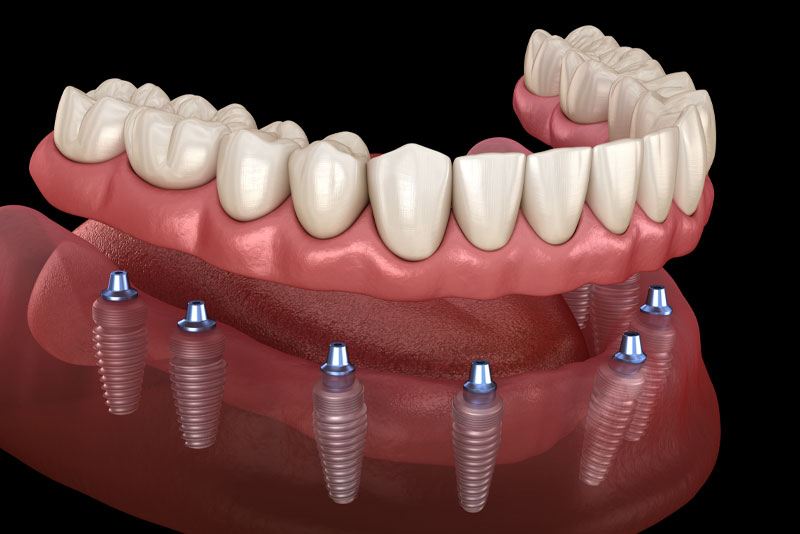
Full Mouth Dental Implants
Full mouth dental implants provide a comprehensive and permanent solution for individuals with extensive tooth loss or severe dental issues. A complete set of prosthetic teeth is securely attached by strategically placing a series of dental implants throughout the upper and lower jaws, restoring the entire oral structure’s function and aesthetics. This transformative approach ensures a stable, natural-looking smile, allowing you to regain your oral health, confidence, and quality of life.
Beyond Words: How Our Dental Care is Reshaping Lives
View More Stories
The Lifelong Benefits
of Dental Implants
- Restore up to 99% of your original bite strength
- Natural appearance and texture
- Complete smile makeover for a dramatic confidence boost
- Improved oral and physical health
- Better quality of life overall


Why Choose Ferber Dental?
With more than two decades of history, the Ferber Dental team is a testament to our unremitting dedication to transforming lives through dental implant procedures. Our extensive experience in this field has allowed us to refine and perfect our techniques, ensuring that you receive the highest care and expertise. Beyond the technical aspects, we take pride in treating everyone as unique and understanding your needs, concerns, and aspirations personally.
As a testament to our commitment to excellence, we proudly announce that we have successfully placed more than 20,000 dental implants. This remarkable milestone not only showcases our proficiency but also underscores our patients’ trust and confidence in our practice. With this wealth of experience and a proven track record, you can rest assured that when you choose Ferber Dental, you’re choosing a team that is dedicated to providing you with exceptional care, advanced techniques, and a compassionate approach that treats you with the respect and individual attention you deserve.
Get Pricing And Options For Treatment
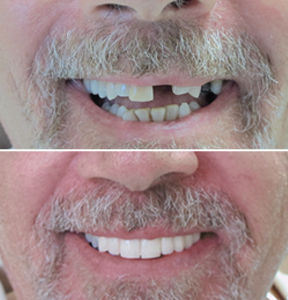
Dental Implants Before & After
What Do Dental Implants Offer Beyond Aesthetics?
Dental implants provide a comprehensive range of benefits beyond aesthetics. In addition to restoring a natural and attractive smile, they offer improved chewing and speech abilities, ensuring comfortable and effective communication. Implants prevent bone loss and maintain facial structure by stimulating the jawbone like natural tooth roots. Their independent placement preserves adjacent healthy teeth, promoting overall oral health. Dental implants contribute to a higher quality of life and lasting well-being with their durability, easy maintenance, and ability to restore confidence and self-esteem.

Top 5 Mistakes People
Make With Dental Implants
Do you have all the information you need to make the right decisions about dental implants? Don’t make any of these five common mistakes. Our exclusive checklist will steer you in the right direction.

Why Experience and Technology Are Key to Exceptional Dental Results!
What Advantages Does An
On-Site Dental Lab Have?
Having an in-house dental lab brings a host of advantages to the realm of dental care. It significantly reduces treatment time by streamlining the fabrication process of dental appliances like crowns, dentures, and bridges. This ensures quicker turnaround and minimizes the need for multiple appointments. It also allows for better quality control, as the dental team can oversee every stage of the creation process, ensuring precision and optimal fit. Thirdly, in-house labs often lead to cost savings for patients, as external lab fees are eliminated. Lastly, the seamless communication between our dental team and lab technicians fosters collaboration, enabling swift adjustments and customization based on individual patient needs.

The Proof Is
In Our Patients
Redefining possibilities of a complete, healthy, and beautiful smile crafted with unmatched precision.

Schedule An Appointment
I understand the information disclosed in this form may be subject to re-disclosure and may no longer be protected by HIPAA privacy regulations and the HITECH Act.


